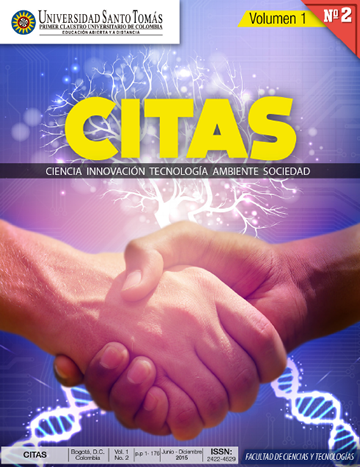El papel del educador no es la actividad de una persona, sino, la acción conjunta de una comunidad
The role of the educator is not the activity of one person, but the joint action of a community
Abstract (en)
This article is the result of a document revision that was carried out as part of the preparation of the main lecture in the III Conversatorio Filosofico organized by the Filosofia, Pensamiento Politico y Economico and the Filosofia Etica y Valores Humanos programs at the Vicerrectoria de Universidad Abierta y a Distancia (VUAD) at Santo Tomas University. Described in this paper the reader can find the factors that affect the academic curriculum in armed conflict areas, either in a direct or indirect way. Furthermore, social phenomena that has an impact in the educational environment is explained based on Latin-American examples and the own experience.
Abstract (es)
El presente artículo ha sido el resultado de una revisión documental llevada a cabo con el objetivo de preparar la ponencia central del III Conversatorio Filosófico, organizado por los Programas de ‘Filosofía, Pensamiento Político y Económico’ y ‘Filosofía Ética y Valores Humanos’ de la Vicerrectoría de la Universidad Abierta y a Distancia (VUAD). En él se muestran los diversos factores que, de manera directa o indirecta, afectan el currículo académico en las zonas de conflicto armado. Además, con el apoyo de algunos ejemplos latinoamericanos y de experiencias vividas, se describen las problemáticas sociales que rodean el entorno educativo.
References
Alvarado, S. V., Luna, M. T., Ospina, H. F., Patiño, J. A., Quintero, M., & Ospina, M. C. (2012). Las escuelas como territorios de paz. Construcción social del niño y la niña como. (CLACSO, Ed.) Recuperado el 12 de Mayo de 2015, de Red de Bibliotecas Virtuales de CLACSO: http://www.clacso.org.ar/libreria-latinoamericana/buscar_libro_detalle.php?campo=autor&texto=&id_libro=707
Freire , P. (s.f.). Pedagogía del Oprimido. Recuperado de http://www.ensayistas.org/critica/liberacion/varios/freire.pdf
Lizarralde Jaramillo, M. (s.f.). Escuela y guerra, la invisibilidad de los ambientes. Recuperado el 30 de mayo de 2015, de http://die.udistrital.edu.co/: http://die.udistrital.edu.co/sites/default/files/doctorado_ud/publicaciones/escuela_y_guerra_invisibilidad_ambientes_educativos.pdf
Romero Muñoz, R. (2011). LOS ESTABLECIMIENTOS ESCOLARES ANTE EL NARCOTRÁFICO. EFECTOS Y PREVENCIÓN. Recuperado el 02 de mayo de 2015, de Dialnet: http://dialnet.unirioja.es/servlet/revista?codigo=17952
Uccelli, F., Agüero, J., Pease, M. A., Portugal, T., & Del Pino, P. (2013). Secretos a voces. Memoria y educación en colegios públicos de Lima y Ayacucho. Recuperado el 21 de abril de 2015, de Instituto de Estudios Peruanos, IEP: http://www.iep.org.pe/biblioteca_virtual.html
Visitas
Downloads
How to Cite
License
The authors sign a transfer of rights so that Universidad Santo Tomás can publish the articles under the conditions described below. The authors, readers and other users are free to share, copy, distribute, perform and publicly communicate the work under the following conditions:
-
Attribution — You must give appropriate credit, provide a link to the license, and indicate if changes were made. You may do so in any reasonable manner, but not in any way that suggests the licensor endorses you or your use.
-
NonCommercial — You may not use the material for commercial purposes.
-
ShareAlike — If you remix, transform, or build upon the material, you must distribute your contributions under the same license as the original.
No additional restrictions — You may not apply legal terms or technological measures that legally restrict others from doing anything the license permits.
CITAS is licensed under Creative Commons Attribution-NonCommercial-ShareAlike 4.0 International (CC BY-NC-SA 4.0).

Until 2019 the documents published in the magazine were under the Creative Commons Attribution-ShareAlike license (CC BY-SA), however, in order to guarantee the open and free distribution of the content published in the magazine, it was decided to change the type Commons Attribution-NonCommercial-ShareAlike 4.0 International license (CC BY-NC-SA 4.0)






